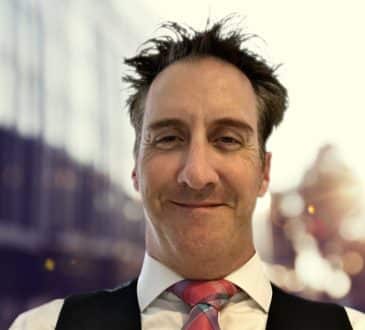In Praise of Delusion

In our culture, “delusion” is almost always used to describe a weak grasp of reality or perhaps a severe mental illness. But there is a different way to think about fantasies: as fuel for creativity and innovation.
Leaders talk a lot about innovation but too often fear the things associated with building a culture that supports game-changing ideas. Leaders want big ideas but nothing too wild; they want to create the next revolution, not be subject to it, but they may also find it hard to tolerate views that start out sounding like science fiction. Successful, game-changing ideas can appear fantastical or even delusional, but making it normal to let these ideas see the light of day is what successful innovators do.
On a memorable trip with a colleague with whom I frequently travelled, I said in exasperation, “Come and talk to me when I can have my phone, calendar, and email in a device the size of my cell phone.” We were sitting on a plane, headed back from Mexico City, tired from work and loaded down with pottery we’d bought at a local market.
It seemed that juggling was our profession. We had crowded schedules, were on planes constantly, navigated places we’d never been, and kept track of our clients’ advice about how not to get kidnapped. (I’m not joking.) We needed to access maps, hotel information, schedules, plane reservations, the client’s name and title, and often how to pronounce it properly. We had lots of paper, computers, and cell phones, but nothing like what is available now. Little did I know that I would have such a device within two years and that now the same device allows me to do a zillion other practical, fun, and helpful things.
I also have vivid memories of standing in the yard of my child-hood home in Cocoa Beach, Florida, watching unmanned launches from Cape Canaveral and the space center that had not yet been named for President Kennedy. The rockets, which did not have astronauts aboard at that time, would routinely explode. When the explosions happened at night, it was a spectacular light show that was beautiful and scary.
Many of the grown-ups in town worked in the space program or had jobs related to it—as engineers, physicists, mathematicians, computer programmers, test pilots, project managers, and so on—and most were men. These were the dads who often built things in their garages, knew how to fix cars, and tended to be a little distant. Nevertheless, they were the epitome of rationality to my child’s mind. I believed they would figure out how to get people into space but also realized I had no idea how they would do it. The people who worked to get humans into space and on the moon eventually made what had appeared irrational real.
When science fiction writer Arthur C. Clarke talked about the future and how people would use computers, it certainly didn’t seem rational. In a 1964 episode of the BBC science documentary show Horizon, Clarke portended a time when people would be able to work from anywhere in the world because computers would connect us. It sounded outlandish when he said it in 1964, but here we are.
What allows some people to hold on to what may seem irrational and allow science, technology, and engineering to catch up? A few qualities:
- Tolerance for ideas that have no obvious way to come to life yet
- Resistance to ridicule
- Understanding that human beings want to explore, literally and in our minds
- The ability to withstand popular ideas in favor of enduring truths
And what of more routine matters, like running a business that needs to constantly create, or one that is technical and scientific but needs to attract and retain people who are technically skilled and can manage other humans? The most talented people don’t always want to lead other gifted people. The messiness of people can be a deterrent to leaders learning how to be good managers and lead well.
An engineering company that wants to grow revenue and margin and enter new markets can’t do it with technical skill alone. And businesses that need artists, like Pixar, have the same problem even though it appears the opposite. As much as an engineer might not want to be involved in things that require too much interpersonal effort, an artist could have equal dislike for business-related matters such as budgets.
The issue is that a person’s professional identity can inhibit their thinking and decision-making by relying on stereotypical dichotomies: either a person is rational, as an engineer or scientist is, or they are irrational, like an artist. Don’t we all know artists who struggle to earn money? Indeed, we’ve all met someone highly technical and who uses data who will analyze the cost per mile of a trip that is supposed to be fun, perhaps driving other people up the wall in the process. People who have the ability to create do so in their minds first.
Some notable examples:
- Ted Turner, who launched CNN without a background in broadcasting
- Jeff Bezos, who started selling books online and was dismissed as a kooky guy with an outlandish laugh
- Elon Musk, who remains a popular object of jabs, but who keeps creating what he first imagines
- Arthur C. Clarke, who dared to predict that someday humans would be instantly connected to each other by computers
- The “Imagineers” at the Disney Corporation, who invented new technologies to be used for entertainment
Walt Disney’s Imagineers were so aptly named because the term merges two essential qualities for innovation: imagination and a way to make it come to life. This corresponds perfectly with rationality and irrationality. Imagination allows us to push aside the limitations of what we know or think we know. Holding on to what we imagine, even though it does not yet exist, instead of dismissing it, allows our brains time to figure things out. Engineering, literal or metaphorical, is a method for the hard work of figuring things out by testing, failing, and trying again until something works, or until we give up.
This article was excerpted from Meta-Leadership: How to See What Others Don’t and Make Great Decisions [Page Two – April 18, 2023]
Written by Constance Dierickx, Ph.D.
Have you read?
Learning the Benefits of Executive Coaching the Hard Way by Jason Richmond.
How to Have More Effective Sales Kickoffs in Virtual and Hybrid Environments by Patrick Kammerer.
Why it’s time we separate facts from feelings by Darren Fleming.
How to Build an Inbound B2B Marketing Funnel by Ryan Jenkins.
How Do Leaders Know Which ERGs They Need by Rhett Power.
Add CEOWORLD magazine to your Google News feed.
Follow CEOWORLD magazine headlines on: Google News, LinkedIn, Twitter, and Facebook.
This report/news/ranking/statistics has been prepared only for general guidance on matters of interest and does not constitute professional advice. You should not act upon the information contained in this publication without obtaining specific professional advice. No representation or warranty (express or implied) is given as to the accuracy or completeness of the information contained in this publication, and, to the extent permitted by law, CEOWORLD magazine does not accept or assume any liability, responsibility or duty of care for any consequences of you or anyone else acting, or refraining to act, in reliance on the information contained in this publication or for any decision based on it.
Copyright 2024 The CEOWORLD magazine. All rights reserved. This material (and any extract from it) must not be copied, redistributed or placed on any website, without CEOWORLD magazine' prior written consent. For media queries, please contact: info@ceoworld.biz
SUBSCRIBE NEWSLETTER








